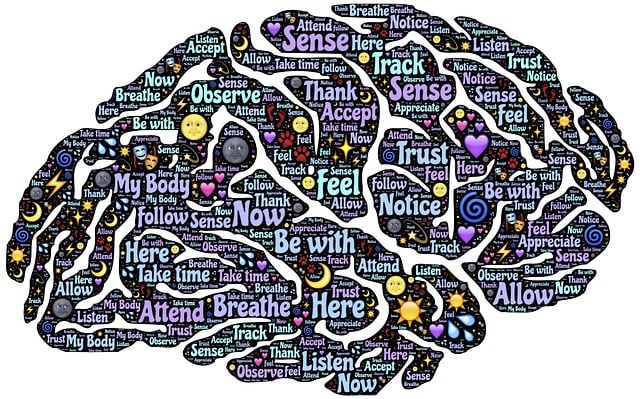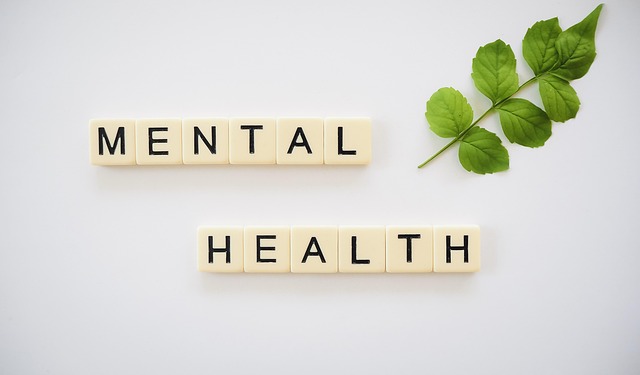Creating a podcast series on children's mental wellness involves designing an engaging format that balances education and entertainment, addressing topics like mindfulness, anxiety management, and resilience-building. Targeting parents, guardians, educators, and kids aged 6-12, the podcast offers therapeutic benefits, guides emotional regulation skills, and contributes to long-term mental wellness coaching programs. Key topics include stress management, anxiety relief, emotional intelligence development, and coping mechanisms for both children and adults. Diverse formats like expert interviews, storytelling, Q&A sessions, and guided meditations cater to different learning styles, promoting mental wellness in the community.
“Unleashing the Power of Mental Wellness Podcasts: A Comprehensive Guide
In today’s digital age, podcasts offer a unique platform for nurturing children’s mental health. This article explores the creation of an engaging and therapeutic podcast series focused on stress management and emotional well-being. From choosing the perfect theme—targeting specific concerns like anxiety and building emotional intelligence—to technical production aspects, we cover it all.
Learn about effective recording techniques, editing tricks for high-quality audio, and strategic marketing to reach and engage your audience. Discover how to transform stressful situations into powerful tools for mental wellness through this comprehensive guide.”
- Choosing the Right Format and Theme
- – Defining the target audience for a children's mental wellness podcast
- – Topics to cover: stress management, anxiety, emotional intelligence, coping mechanisms etc.
- – Format ideas: interview with experts, storytelling, interactive segments
Choosing the Right Format and Theme

When creating a podcast series focused on mental wellness, particularly for children’s therapy and stress management, selecting the right format and theme is paramount. A mix of educational and engaging content can effectively cater to diverse audiences, from parents seeking guidance to educators interested in promoting emotional well-being. Consider incorporating interviews with experts, case studies, and practical tips to offer a holistic approach to mental health.
Thematic focus on therapy for children allows for exploring various aspects such as mindfulness techniques tailored for kids, managing anxiety, and fostering resilience. Integrating these topics not only caters to immediate needs but also contributes to long-term mental wellness coaching programs development. Moreover, discussing emotional well-being promotion techniques within the context of a child’s life can equip both parents and educators with tools to support young minds, ultimately influencing broader mental health policy analysis and advocacy.
– Defining the target audience for a children's mental wellness podcast

When creating a children’s mental wellness podcast, understanding your target audience is paramount. The primary focus should be on parents, guardians, educators, and children aged 6-12 years old. This demographic often faces unique challenges related to stress management, as they navigate school pressures, peer interactions, and personal emotional development. A well-crafted podcast can offer valuable therapy for children, guiding them towards healthy emotional regulation skills.
By addressing the needs of this specific audience, the podcast can also serve as a resource for burnout prevention strategies for healthcare providers who work with young individuals. Incorporating topics like stress management techniques, mental wellness coaching programs development, and fostering resilience can empower both children and their support systems to proactively manage mental health.
– Topics to cover: stress management, anxiety, emotional intelligence, coping mechanisms etc.

In planning a Mental Wellness Podcast Series Production, it’s essential to select topics that resonate with your target audience and offer practical solutions. Focus on themes like stress management, anxiety relief, emotional intelligence development, and coping mechanisms for both children and adults. Incorporating discussions around self-esteem improvement and coping skills development can significantly enhance the podcast’s impact, empowering listeners to navigate life’s challenges more effectively. By addressing these issues, your podcast series can become a valuable resource for individuals seeking therapy for children and adults alike, contributing to improved mental wellness in your community.
– Format ideas: interview with experts, storytelling, interactive segments

In crafting a captivating mental wellness podcast series, diverse formats can effectively engage listeners and promote emotional well-being. One popular approach is the interview format, where experts in child psychology, therapists, or mental health advocates share valuable insights and practical tips. This strategy provides an excellent platform to discuss topics like stress management for children, offering parents and caregivers actionable advice. Storytelling is another powerful tool; sharing personal narratives of overcoming challenges can inspire listeners and foster a sense of community. For instance, stories of inner strength development during difficult times can resonate deeply with the audience.
Interactive segments are also worth considering to actively involve listeners. This could include question-and-answer sessions, where users can call in or submit queries related to their mental health struggles. Additionally, featuring activities like guided meditations or mindfulness exercises within the podcast can provide immediate practical techniques for stress management. By combining these formats, your podcast series can cater to various learning styles and ensure a comprehensive Mental Health Awareness journey for your audience.
Producing a mental wellness podcast series focused on children’s well-being can significantly impact their lives by providing accessible therapy for stress management and anxiety relief. By tailoring content to specific age groups, such as interactive segments for younger listeners or in-depth discussions for teenagers, you can enhance emotional intelligence and equip kids with essential coping mechanisms. Using formats like expert interviews and captivating storytelling, each episode can offer practical insights and a safe space to explore mental health topics. This approach not only entertains but also educates, fostering open conversations about emotional well-being.














